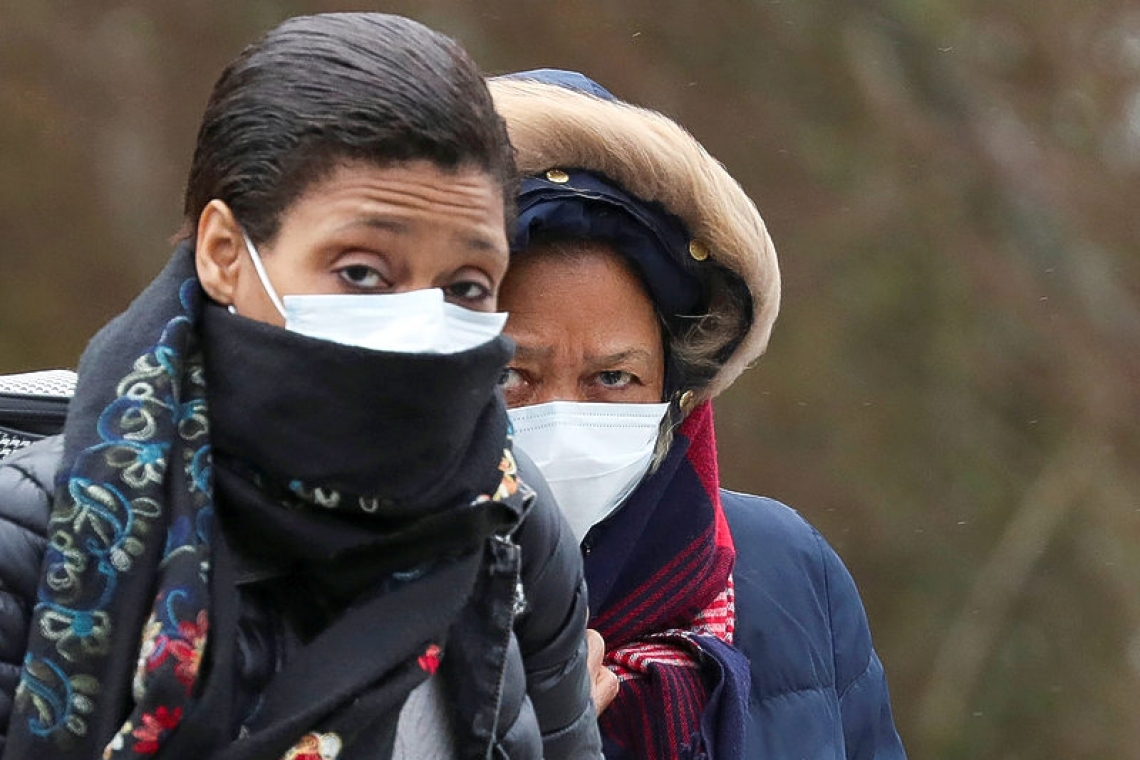Women wearing masks leave a Creil's hospital, where people tested positive for coronavirus have been treated, France, February 27, 2020. REUTERS/Yves Herman
MARIGOT--The French anti-fraud enforcement and control agency DIECCTE says it is currently remaining vigilant to detect unfair commercial practices seeking to take advantage of fears related to the coronavirus outbreak.
It said the coronavirus epidemic may give rise to opportunistic practices by unscrupulous operators. Fraud law enforcement officers are therefore tightening their controls on respiratory filtering devices and hydro-alcoholic gels.
The unprecedented demand for these products combined with supply difficulties may lead to the marketing of non-compliant products and/or abusive pricing practices.
These marketing interventions will seek to offer for sale products presented as being likely to protect against coronavirus. For information, there are three types of masks; Devices explicitly designed to protect objects in the manufacturing environment from saliva projection or fogging. These masks are usually fitted with a single elastic band and do not seal the face. They are supposed to offer no protection to people.
Surgical type masks are worn by front line medical personnel or contagious patients in hospitals to protect their environment. They must comply with the regulatory requirements for medical devices but do not provide respiratory protection for the wearer.
Devices claiming to protect the wearer against external risks (protection against particles or aerosols. These masks are Personal Protective Equipment (PPE). Depending on their effectiveness, they can provide do-it-yourself (DIY) enthusiasts with protection against various working dusts that are harmful to the lungs (FFP1 filtration class) or are likely to be used by the public against viruses (FFP2 filtration class).
Some FFP2 type masks are designed by the manufacturer to ensure the personal protection of the wearer while providing an anti-projection function. Such products must meet both the regulatory requirements for PPE and the regulatory requirements for medical devices. Finally, masks claiming protection against pollution (for cyclists) have recently been introduced on the market. The actual effectiveness of these masks may deviate from their theoretical effectiveness, due to a poor fit to the face or lack of maintenance of the device.
A PPE must be provided with a stamp attesting to its “CE” (Conformité Européene) – European conformity – and allowing its identification. The details of the manufacturer or importer must appear on the product or packaging as well as a date of production and/or expiration.
In the case of PPE subject to ageing (if the manufacturer cannot commit to the life of the PPE), mention must be made in the instructions of any useful data enabling the purchaser or user to determine a reasonable expiry month or year.







